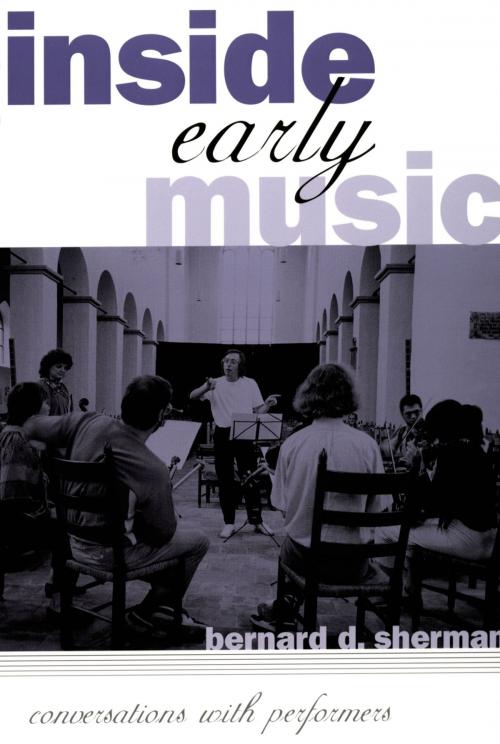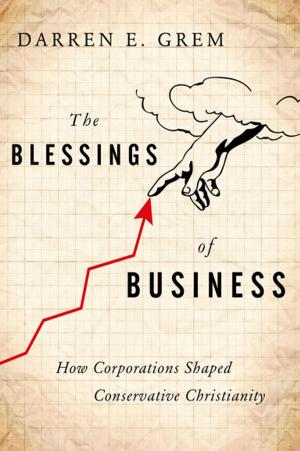Inside Early Music
Conversations with Performers
Nonfiction, Entertainment, Music, Theory & Criticism, History & Criticism, Reference| Author: | Bernard D. Sherman | ISBN: | 9780190290818 |
| Publisher: | Oxford University Press | Publication: | October 9, 2003 |
| Imprint: | Oxford University Press | Language: | English |
| Author: | Bernard D. Sherman |
| ISBN: | 9780190290818 |
| Publisher: | Oxford University Press |
| Publication: | October 9, 2003 |
| Imprint: | Oxford University Press |
| Language: | English |
The attempt to play music with the styles and instruments of its era--commonly referred to as the early music movement--has become immensely popular in recent years. For instance, Billboard's "Top Classical Albums" of 1993 and 1994 featured Anonymous 4, who sing medieval music, and the best-selling Beethoven recording of 1995 was a period-instruments symphony cycle led by John Eliot Gardiner, who is Deutsche Grammophon's top-selling living conductor. But the movement has generated as much controversy as it has best-selling records, not only about the merits of its results, but also about the validity of its approach. To what degree can we recreate long-lost performing styles? How important are historical period instruments for the performance of a piece? Why should musicians bother with historical information? Are they sacrificing art to scholarship? Now, in Inside Early Music, Bernard D. Sherman has invited many of the leading practitioners to speak out about their passion for early music--why they are attracted to this movement and how it shapes their work. Readers listen in on conversations with conductors Gardiner, William Christie, and Roger Norrington, Peter Phillips of the Tallis Scholars, vocalists Susan Hellauer of Anonymous 4, forte pianist Robert Levin, cellist Anner Bylsma, and many other leading artists. The book is divided into musical eras--Medieval, Renaissance, Baroque, and Classic and Romantic--with each interview focusing on particular composers or styles, touching on heated topics such as the debate over what is "authentic," the value of playing on period instruments, and how to interpret the composer's intentions. Whether debating how to perform Monteverdi's madrigals or comparing Andrew Lawrence-King's Renaissance harp playing to jazz, the performers convey not only a devotion to the spirit of period performance, but the joy of discovery as they struggle to bring the music most truthfully to life. Spurred on by Sherman's probing questions and immense knowledge of the subject, these conversations movingly document the aspirations, growing pains, and emerging maturity of the most exciting movement in contemporary classical performance, allowing each artist's personality and love for his or her craft to shine through. From medieval plainchant to Brahms' orchestral works, Inside Early Music takes readers-whether enthusiasts or detractors-behind the scenes to provide a masterful portrait of early music's controversies, challenges, and rewards.
The attempt to play music with the styles and instruments of its era--commonly referred to as the early music movement--has become immensely popular in recent years. For instance, Billboard's "Top Classical Albums" of 1993 and 1994 featured Anonymous 4, who sing medieval music, and the best-selling Beethoven recording of 1995 was a period-instruments symphony cycle led by John Eliot Gardiner, who is Deutsche Grammophon's top-selling living conductor. But the movement has generated as much controversy as it has best-selling records, not only about the merits of its results, but also about the validity of its approach. To what degree can we recreate long-lost performing styles? How important are historical period instruments for the performance of a piece? Why should musicians bother with historical information? Are they sacrificing art to scholarship? Now, in Inside Early Music, Bernard D. Sherman has invited many of the leading practitioners to speak out about their passion for early music--why they are attracted to this movement and how it shapes their work. Readers listen in on conversations with conductors Gardiner, William Christie, and Roger Norrington, Peter Phillips of the Tallis Scholars, vocalists Susan Hellauer of Anonymous 4, forte pianist Robert Levin, cellist Anner Bylsma, and many other leading artists. The book is divided into musical eras--Medieval, Renaissance, Baroque, and Classic and Romantic--with each interview focusing on particular composers or styles, touching on heated topics such as the debate over what is "authentic," the value of playing on period instruments, and how to interpret the composer's intentions. Whether debating how to perform Monteverdi's madrigals or comparing Andrew Lawrence-King's Renaissance harp playing to jazz, the performers convey not only a devotion to the spirit of period performance, but the joy of discovery as they struggle to bring the music most truthfully to life. Spurred on by Sherman's probing questions and immense knowledge of the subject, these conversations movingly document the aspirations, growing pains, and emerging maturity of the most exciting movement in contemporary classical performance, allowing each artist's personality and love for his or her craft to shine through. From medieval plainchant to Brahms' orchestral works, Inside Early Music takes readers-whether enthusiasts or detractors-behind the scenes to provide a masterful portrait of early music's controversies, challenges, and rewards.















